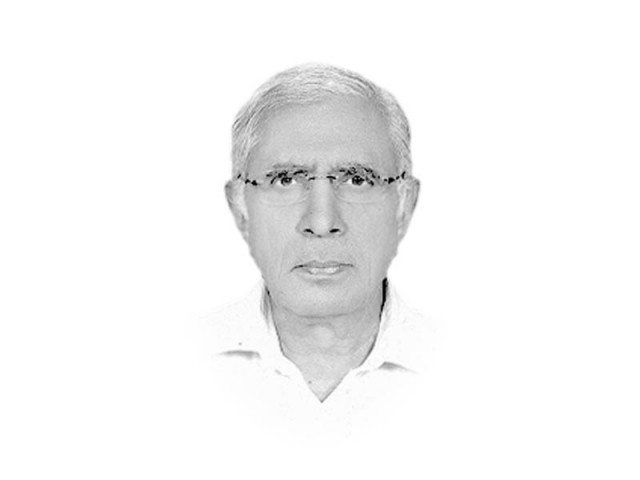The medico-legal aspect of rape cases
Invariably an MLO, whether male or female, is a simple MBBS, who has been given two-week training

The writer served as Executive Editor of The Express Tribune from 2009 to 2014
But there are other aspects of the issue that also need to be looked into with equal urgency. There is a lack of competent prosecutors in the country. And even if you get a properly trained prosecutor willing to take cases to their logical conclusion, more often than not, he is hampered by the way our police work. The police are known, in most cases, to have exploited the opportunity to milk both the perpetrator and the victim, obliging the former by suppressing whatever tell-tale evidence has come their way, and threatening the latter with dire consequences for making ‘false’ accusations.
However, in most instances, the prosecutor fails to prove the case in the court of law because the police don’t provide him with the required evidence and the police in turn fail to do so because the personnel responsible for extracting such evidence — the medico-legal officers (MLO) of public-sector hospitals — miserably fail to do their job with any degree of competence and professionalism.
In rape cases, the timing is of essence. Most of the cases are not reported in time. Often the victims and their families run to the police rather than to public hospitals to first establish the crime. But even when they reach the right hospitals, more often than not, they do not find the right person — the MLO — who in most cases would be a male and invariably not found in the hospital in the evenings. Invariably an MLO, whether male or female, is a simple MBBS, who has been given two-week training. There are no refresher courses and no direct budget allocations for the medico-legal section.
There are no more than nine women MLOs in the country with seven of them in Karachi for a female population of almost 10 million. There is one in Hyderabad against six vacancies and one in Peshawar. Lahore does not have even one, but of course it has a couple of male MLOs. In Islamabad, there are two male MLOs but no woman MLO. In public hospitals in other parts of the country, we do not even have male MLOs.
The actual job of the MLO is to do a complete physical examination, collect chemical and biological evidence, seal the evidence for chemical/DNA testing, provide first-aid to the victim, issue a medico-legal certificate, refer the case to the police for case registration and testifying in court (outside Sindh, women MLOs are exempted from appearing in courts).
Most of the data mentioned above is found in a well- researched paper, “Health-based response of sexual and gender-based violence — role of medico-legal sector” (presented on December 17, 2014) prepared by Sarah Zaman, an expert on the subject. She has mentioned a long list of causes she thinks make it impossible for conducting a thorough medico-legal examination of a rape victim and gather evidence that would stand in a court of law:
Little or no privacy for the victim at the place of examination; absence of specialised equipment or standardised examination kits; even standardised instruments are available only in the morning, not in the evenings; most of the time victims are sent to private laboratories for important medical tests; no standard head-to-toe examination is done; no documentation of vital evidence is made; emergency prophylactic is not provided including emergency contraception; no testing for HIV/Aids; no virginity and two-finger tests done to substantiate claims of (attempted) rape; no facilities are provided or even the option given for abortion of rape-related pregnancies; victims are charged for replenishing the equipment used for evidence-collection, like swabs, slides, vials, etc.
So, it is also the medico-legal aspect of rape-related cases that needs to be urgently addressed, with the focus being on improving the competence of the personnel, setting up a country-wide network of MLOs — preferably women MLOs — available round-the-clock and ensuring that adequate facilities are provided for the job.
Published in The Express Tribune, March 4th, 2015.
Like Opinion & Editorial on Facebook, follow @ETOpEd on Twitter to receive all updates on all our daily pieces.















COMMENTS
Comments are moderated and generally will be posted if they are on-topic and not abusive.
For more information, please see our Comments FAQ